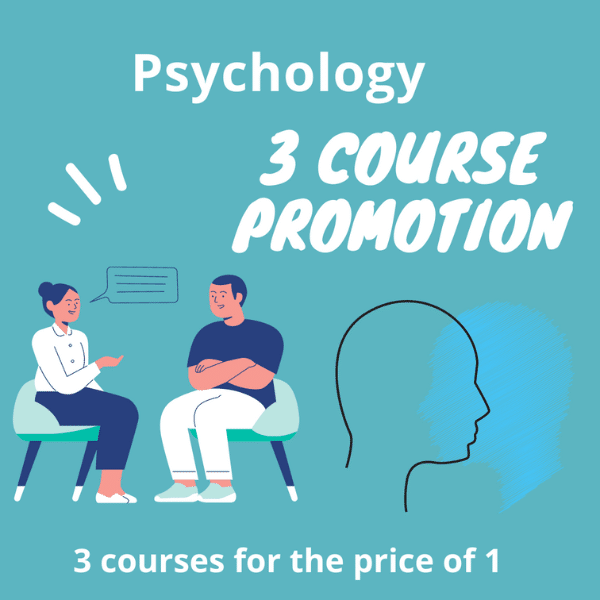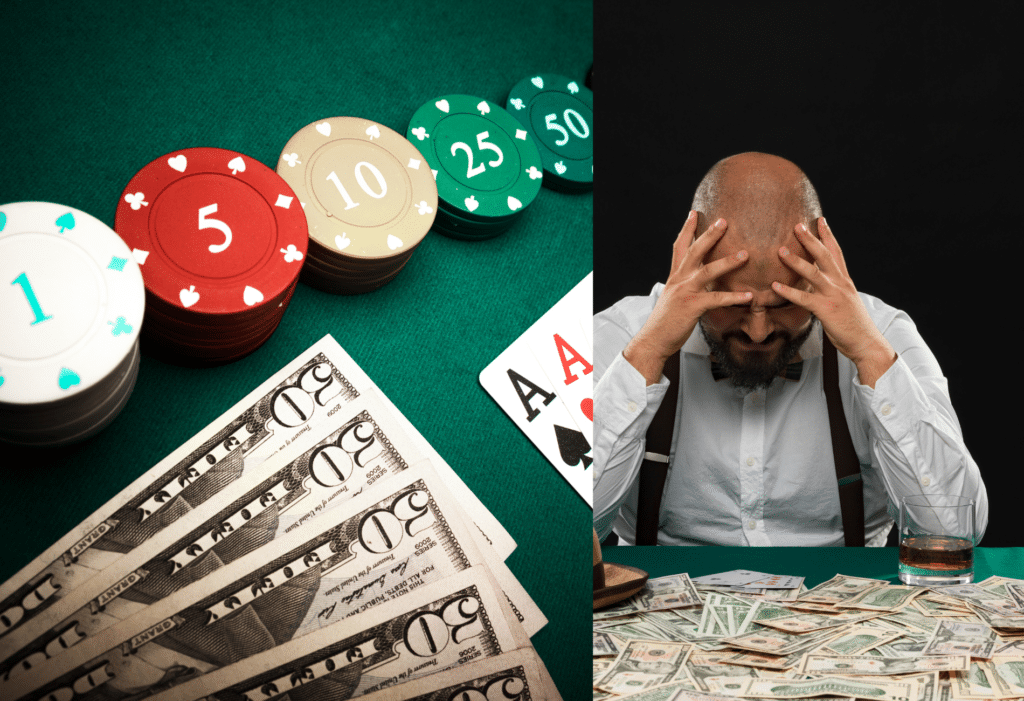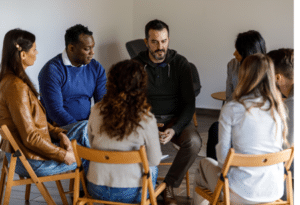Understanding Gambling Addiction
Gambling addiction, also known as compulsive gambling, is a behavioral disorder that can cause significant harm to individuals and their families. This condition is marked by the inability to control gambling impulses, even when it leads to negative consequences like financial loss, damaged relationships, and mental health issues.
People often feel trapped in a cycle of chasing losses, which reinforces their addiction. Understanding that gambling addiction is a condition, not a failure of willpower, is the first step to recovery.
Table of Contents
- Understanding Gambling Addiction
- Denial in Gambling Addiction
- Recognizing the Signs of Problem Gambling
- Steps to Give Up Gambling
- Building a Support System to Quit Gambling
- Practical Tools to Stay Gambling-Free
- Long-Term Recovery and Maintaining Progress
Denial in Gambling Addiction
Denial is a common barrier to addressing gambling addiction. It occurs when an individual refuses to acknowledge the extent of their problem, minimizing its impact on their life and those around them. Denial serves as a psychological defense mechanism, helping people avoid feelings of shame, guilt, or fear associated with their gambling behavior.
In gambling addiction, denial can take many forms. Some individuals might rationalize their actions by claiming they can quit anytime or insisting that gambling is a form of harmless entertainment. Others may downplay their losses, shift blame onto external factors, or hide the extent of their gambling from loved ones.
This denial prevents individuals from seeking help and recognizing the need for change. It can also contribute to strained relationships, financial difficulties, and worsening mental health. Breaking through denial often requires a combination of self-awareness and external intervention.
Support from loved ones, counseling, and structured programs like Cognitive Behavioural Therapy (CBT) can help individuals confront denial. Therapists often use motivational techniques to encourage honest reflection and emphasize the benefits of recovery. Recognizing and addressing denial is a critical first step toward overcoming gambling addiction and rebuilding a healthier life.
Recognizing the Signs of Problem Gambling
Identifying problem gambling can help you or someone you care about seek the right help. Common signs include:
- Spending more money and time on gambling than intended.
- Lying to family or friends about gambling habits.
- Neglecting work, school, or other responsibilities.
- Borrowing money to gamble or pay off gambling-related debts.
- Feeling restless or irritable when trying to cut back on gambling.
If any of these behaviors sound familiar, it’s time to take steps to give up gambling before the problem worsens.
Steps to Give Up Gambling
Breaking the cycle of gambling requires commitment and actionable steps. Here’s a practical roadmap:
- Acknowledge the Problem
Accepting that gambling is a problem is the first step toward making meaningful change. - Set Clear Goals
Define what you want to achieve, such as paying off debts, improving relationships, or regaining control of your life. - Limit Access to Gambling
- Block gambling websites and apps.
- Avoid venues where gambling is available.
- Use self-exclusion programs to ban yourself from casinos or betting shops.
- Track Spending
Create a budget to manage finances and avoid spending money on gambling. - Seek Professional Help
Therapies like Cognitive Behavioural Therapy (CBT) and motivational interviewing are highly effective in treating gambling addiction.
Building a Support System to Quit Gambling
A strong support system can make a huge difference when trying to give up gambling. Here’s how you can create one:
- Talk to Loved Ones
Share your struggles with trusted family members or friends who can offer encouragement and accountability. - Join Support Groups
Organizations like Gamblers Anonymous provide a safe space to connect with others in recovery. - Work with a Counselor
A therapist specializing in addiction can help you understand triggers and develop healthier coping mechanisms.
Remember, you don’t have to do this alone. Having people who believe in your ability to change can help keep you motivated.
Practical Tools to Stay Gambling-Free
Staying gambling-free requires practical strategies to manage triggers and build healthier habits:
- Identify Triggers
Be aware of situations, emotions, or places that tempt you to gamble. - Replace Gambling with New Activities
- Exercise or join a sports club.
- Take up a hobby like painting, reading, or gardening.
- Volunteer in your community to focus on positive contributions.
- Monitor Your Progress
Keep a journal to track how far you’ve come and celebrate milestones. - Use Financial Safeguards
- Limit access to cash or credit.
- Appoint someone you trust to oversee your finances temporarily.
These tools can help you stay in control and avoid slipping back into old habits.
Long-Term Recovery and Maintaining Progress
Recovery from gambling addiction is a lifelong process. Here are tips for maintaining your progress:
- Stay Accountable
Regularly check in with your support network or a counselor to keep yourself on track. - Continue Education
Learn more about addiction and recovery through books, podcasts, or online courses. - Be Patient
Recovery isn’t always linear. If you experience a setback, don’t give up—view it as a learning opportunity. - Celebrate Successes
Recognize your progress and reward yourself for milestones, such as staying gambling-free for a month or paying off debt.
By focusing on long-term recovery, you can rebuild your life and enjoy the benefits of a gambling-free lifestyle.
FAQs
1. What are the first steps to give up gambling?
The first steps include acknowledging the problem, setting clear goals, limiting access to gambling, and seeking professional help. Starting small and building momentum can lead to significant changes.
2. How can I block access to gambling sites and apps?
You can use blocking software like Gamban, BetBlocker, or GamBlock. These tools restrict access to gambling websites and apps on your devices.
3. Is it possible to recover from gambling addiction on your own?
While it’s possible, recovery is often more effective with support. Joining a support group, working with a therapist, or confiding in loved ones can make the journey less isolating and increase your chances of success.
By following these practical steps and strategies, you can give up gambling and take back control of your life. The road to recovery may have challenges, but the rewards of a healthier, happier future are worth the effort.







